Engaged in the clothing industry for 20 years.

A Q&A with Kingston University GFW22 award winners Amelia Dyer and Bing Bing Bai
The next edition of what is known as the biggest UK graduate showcase at the bachelor level, Graduate Fashion Week, is set to take place in June 2023.
FashionUnited wants to highlight some of the winners of last year’s GFW awards.
During the count-down to GFW23 in June, you can read one or more interviews with the students of Kingston School of Art who took home such an award at GFW22.
In summer 2022, five students from the bachelor in fashion at Kingston School of Art in London were recognised for their graduate collections: Amelia Dyer, Juliette Wells Gray, Bing Bing Bai, Meerim Mamatova, and Kyra Ellis-Edwards
FashionUnited was able to talk to the five GFW22 winners about the looks they created, their hopes and dreams for the future and what changes they would like to see happen in the fashion industry.
This month, FashionUnited will introduce you to GFW22 award winners Amelia Dyer who won the Zandra Rhodes Fashion Textile Award 2022 and Bing Bing Bai, the winner of last year’s Sustainability Trailblazer Award.
Amelia Dyer, Zandra Rhodes Fashion Textile Award 2022
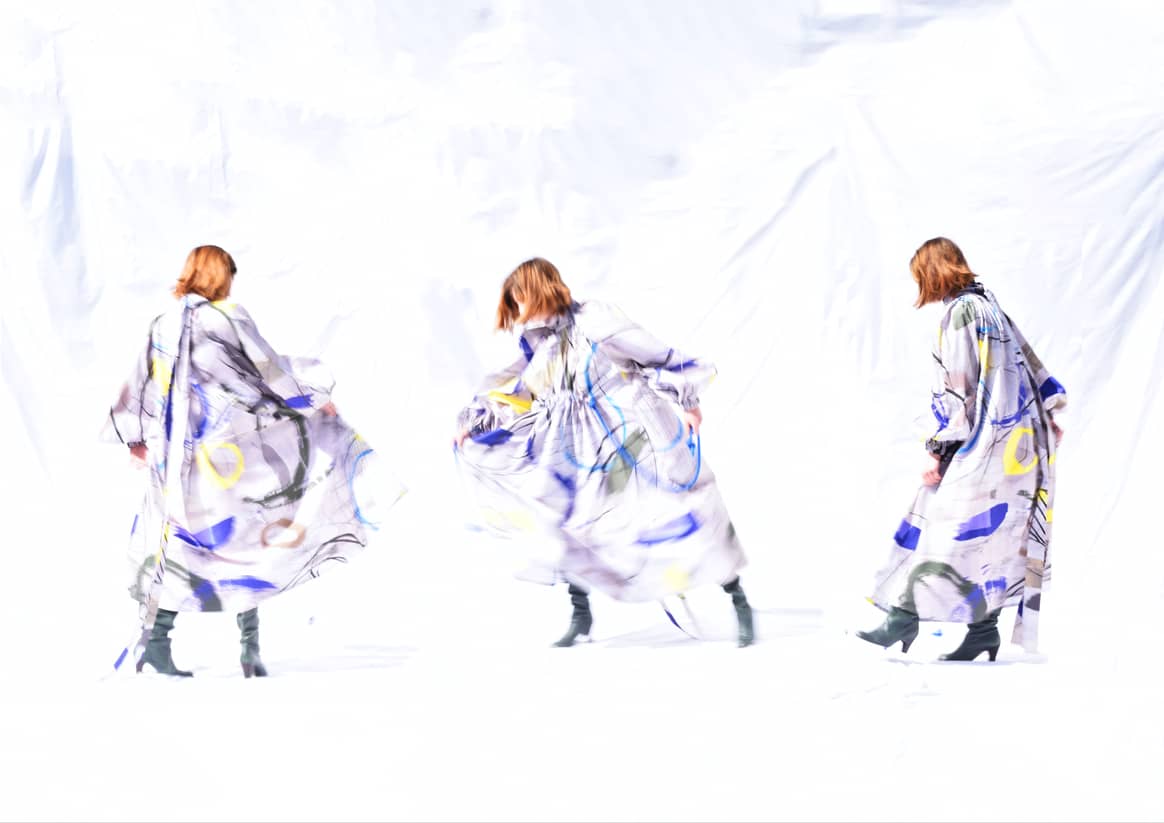
1. How do you feel after winning a GFW award?
I feel so honoured to have been recognised for my collection and for my appreciation of textiles within fashion. It was also an amazing and inspiring opportunity to be a part of Graduate Fashion Week, alongside so many other talented creatives.
2. What fashion statement did you choose to present and why?
My project primarily draws on themes surrounding art, design, memories and heirlooms. I like to celebrate references from alternative areas of design including sculpture, fine art, architecture and furniture, to create innovative and unusual garments. Having an appreciation for the art and textile world is something I feel passionate about and I wanted to celebrate this within my collection.
Equally, I endeavour to embrace a sustainable mindset through my designs. In this collection, I sourced and repurposed unique pieces such as leftover army tents and my grandfather’s military kit bags. These historical artefacts which would previously have had a different function were transformed into something innovative and contemporary.
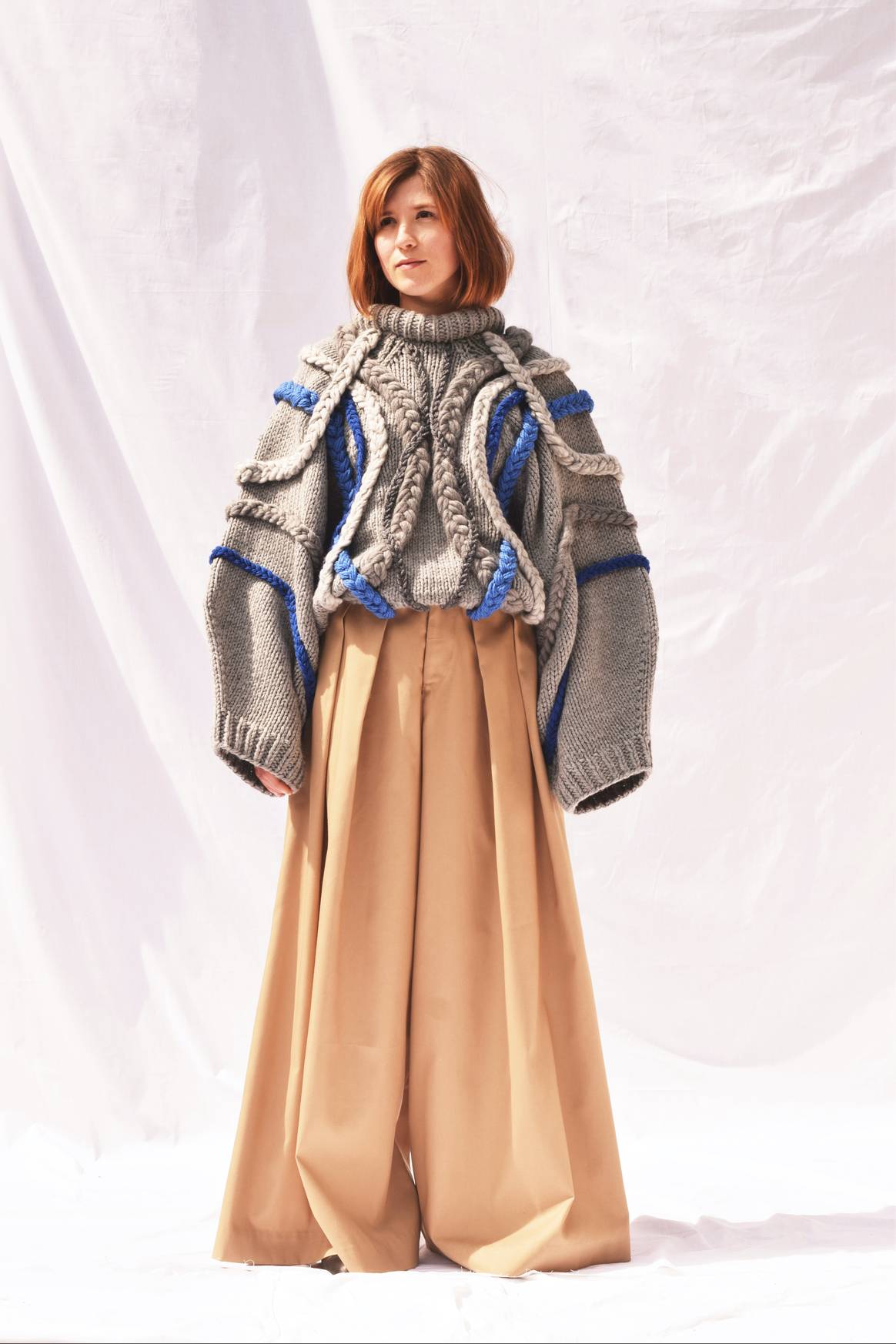
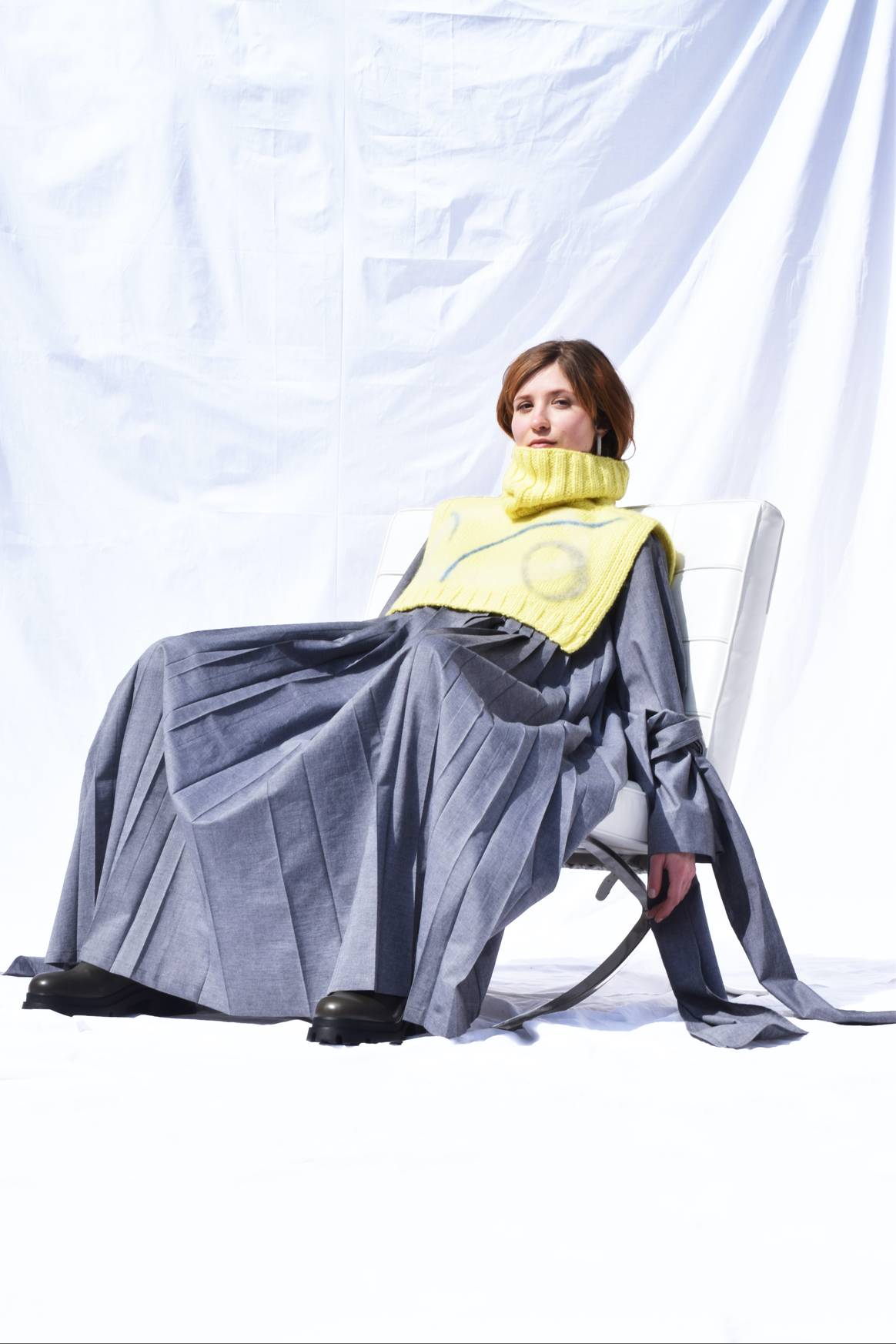
3. What impact would you like to have on the fashion industry?
It’s an exciting, ever-changing time for designers, with new innovative ways of manufacturing, different fabrics emerging and digital trends transforming the industry. I think it is important to still reference traditional methods and craftsmanship, to have an authentic thread within the design process. It is for this reason I want to celebrate the marriage of fine art and fashion and champion this collaboration by using constructed textiles in my future fashion career.
The Sustainability Trailblazer Award at GFW22: Bing Bing Bai
1. How do you feel after winning a GFW award?
I feel honoured to have been given this opportunity and recognised for my work at Graduate Fashion Week, which I couldn’t have done without the help and support of my tutors. As someone who is passionate about sustainable design, I’m delighted to have received this award, and I’m looking forward to experimenting with this further through my career.
2. Can you describe the looks that you submitted?
I chose to use the method of subtraction cutting to reduce waste in production, resulting in experimental garments that break the boundaries of the usual garment shapes. I also used linen, undyed cotton cloth, and recycled handkerchiefs and blankets that were discontinued in production in China in the 1980s to make the double-sided handmade embroidered kantha patchwork that appears in my collection. These were all made using simple stitches to retain the original charm of the fabric.
Patterned cloth is a childhood memory for many who grew up in the 1970s and 80s in China. Nowadays, only a few stores still retain old patterns from that time, most of which are kept as discontinued and unsaleable inventory. These patterns are not only symbolic of the emotions and memories of these generations, but also epitomise the life of ordinary people under the social and economic development of that era.
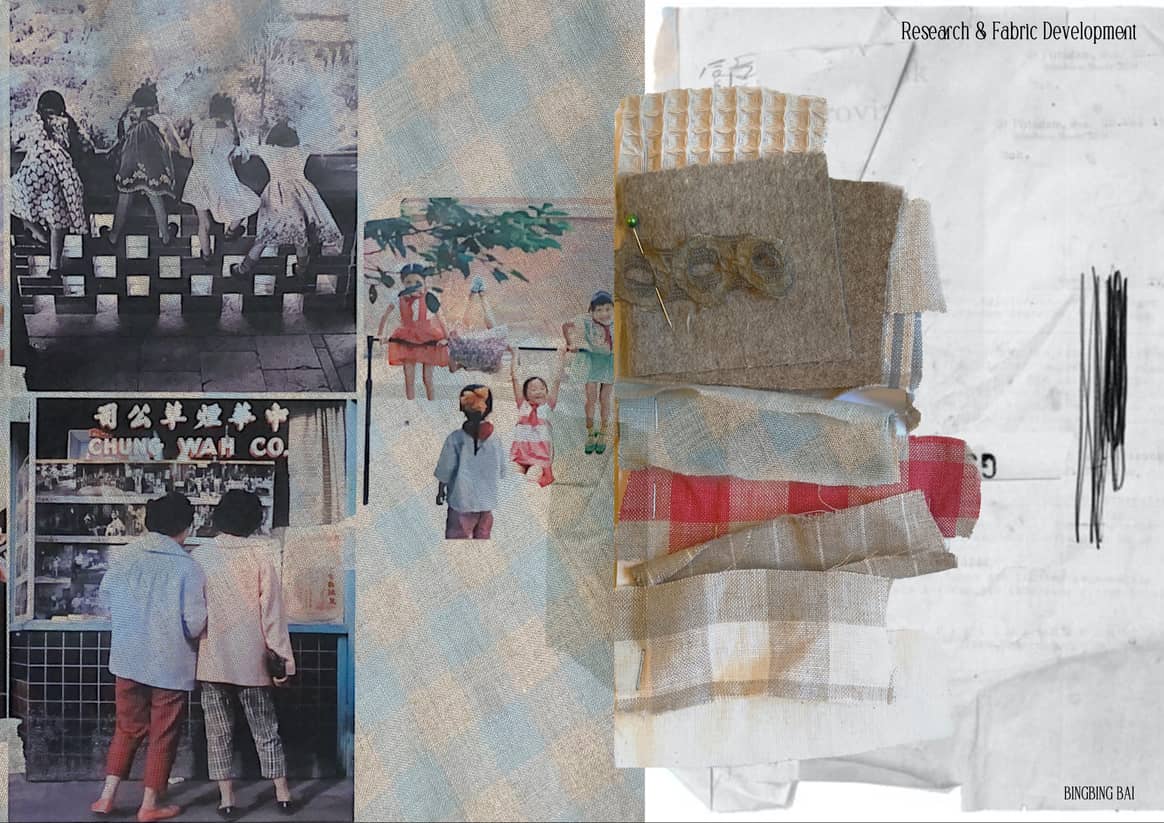
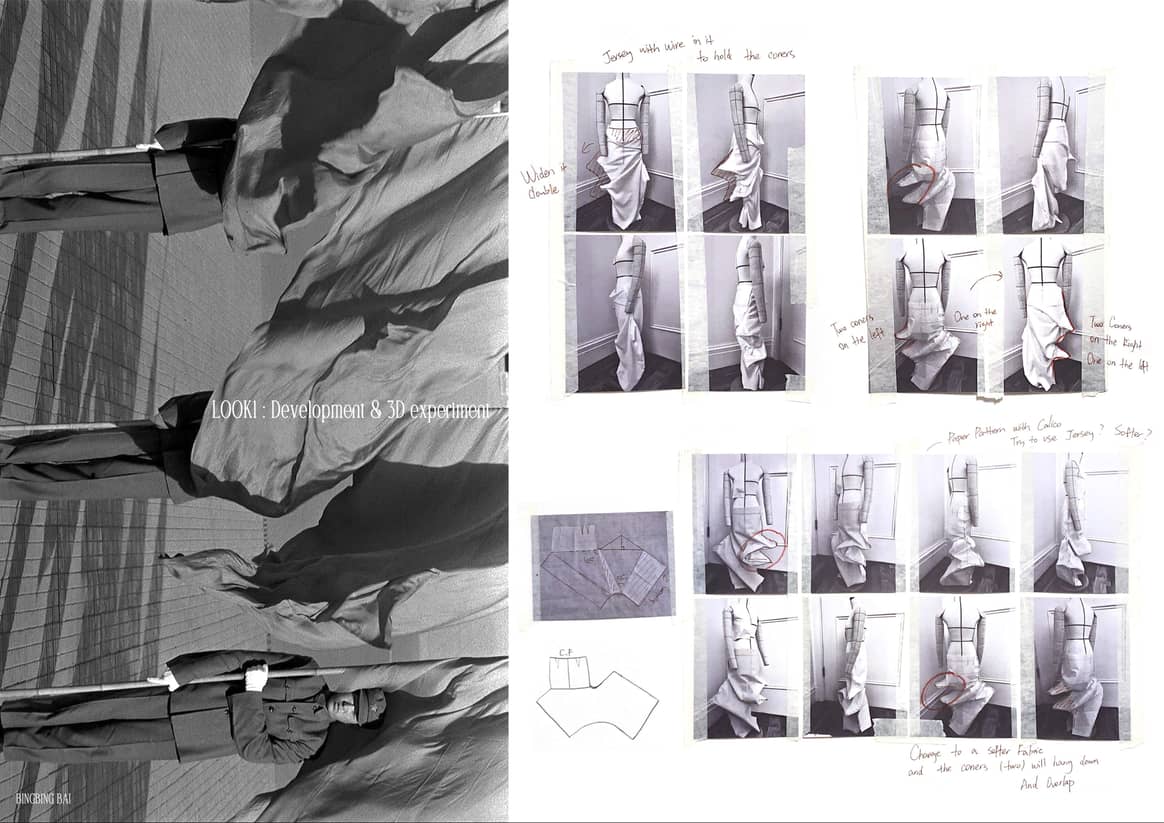
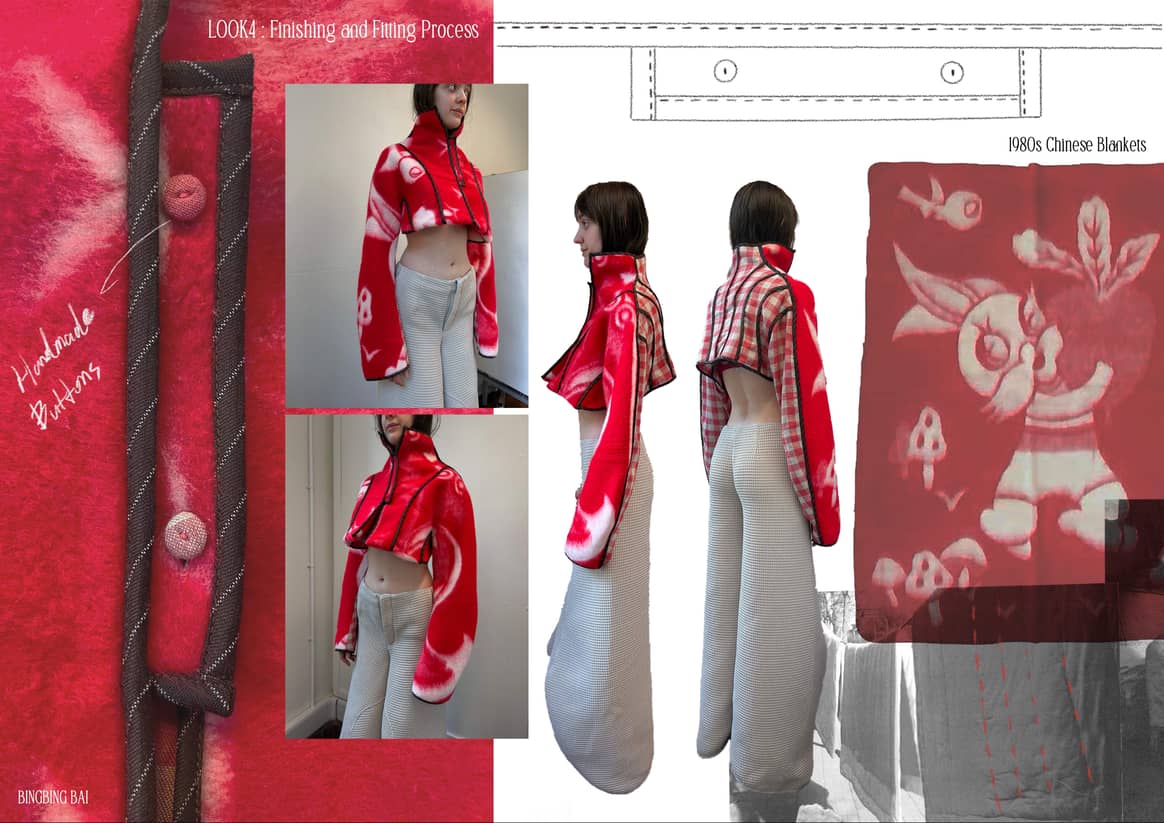
3. What is an aspect of the fashion industry that you want to help improve or have a positive impact on?
I’ve been paying attention to product packaging, waste, and sustainability issues for the past year. I have learnt a lot from Victor Papanek’s book The Green Imperative. It explores secondary recycling and low pollution issues and encourages environmental protection of the entire design process. I hope to be able to put this into practice through what I end up doing in the industry.


